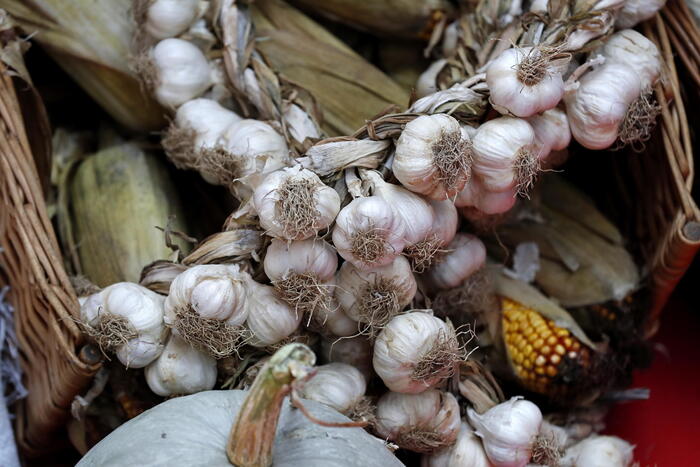Fewer nutrients in fruit and vegetables: The consequences of modern agriculture
Created: 06/28/2022, 16:00
By: Laura Knops
Many foods are grown using modern methods.
This can also affect the vitamin and nutrient content.
Munich – Fruit and vegetables from the greenhouse, no matter what the season: If you look around in the fresh produce department of the supermarket, you will usually see a wide range of healthy foods.
Thanks to industrial mass production, we hardly ever have to go without food in the supermarket.
Most types of fruit and vegetables can now be bred out in industrial mass production.
However, news about health-threatening pollutants, missing vitamins and long transport routes are causing consumers increasing concern.
Many believe that fresh food in particular is no longer as nutritious as it used to be.
Nutrients in fruits and vegetables: The consequences of modern agriculture
Fruit and vegetables at any time of the year: this is possible thanks to modern cultivation methods (symbol image).
© Panthermedia / Imago
In fact, according to National Geographic, there is mounting evidence that many of the fruits, vegetables, and grains grown today are not as rich in vitamins and nutrients as they were 70 years ago.
Various scientific studies show that many foods contain less protein, calcium, phosphorus, iron, riboflavin and vitamin C than those that landed on our plates decades ago.
The lack of nutrients in many foods is also so drastic that it could even endanger the health of consumers.
"Nutritional depletion could result in our body having fewer components it needs to protect itself against chronic disease," David R. Montgomery, a professor of geomorphology at the University of Washington in Seattle, told National Geographic.
You can find even more exciting health topics in the free 24vita newsletter, which you can subscribe to right here.
Nutrients in fruit and vegetables: The causes lie in modern cultivation
According to some scientists, the reason for this trend lies primarily in modern agricultural practices.
Although these increased crop yields, they adversely affected the nutrient content of the soil.
Regular watering, fertilizing and harvesting can therefore reduce the absorption of nutrients from the soil.
If carbon dioxide levels continue to rise as a result of climate change, this could also reduce the amount of nutrients in fruit, vegetables and grains.
Due to various environmental and climatic influences, however, the vitamin content is also subject to natural fluctuations.
The good news: If the cultivation methods are adapted using today's knowledge, this nutrient decline can be easily counteracted.
For example, food grown on farms using regenerative farming practices has a higher nutritional value than food grown under traditional standards.
Consumers should also not be discouraged from eating fresh fruit and vegetables.
According to the experts, however, it is worth paying attention to how the food was grown.
Nutrients in fruits and vegetables: The amount matters
According to the consumer center, it also makes sense to use fresh fruit and vegetables when shopping instead of processed alternatives.
Because freshly harvested foods contain the most vitamins and minerals.
On the other hand, supposed vitamin bombs such as smoothies from the refrigerated section or pre-cut fruit are not necessarily healthy.
Not only are important nutrients lost during processing, storage and packaging in plastic.
The pre-cut fruit also offers a perfect breeding ground for bacteria and germs, for example.
Only when unprocessed food is consumed is the entire spectrum of vital and bioactive substances actually ingested.
The German Society for Nutrition (DGE) also recommends eating at least three servings of vegetables (around 400 grams) and two servings of fruit (around 250 grams) every day.
This article only contains general information on the respective health topic and is therefore not intended for self-diagnosis, treatment or medication. In no way does it replace a visit to the doctor. Unfortunately, our editors are not allowed to answer individual questions about clinical pictures.








